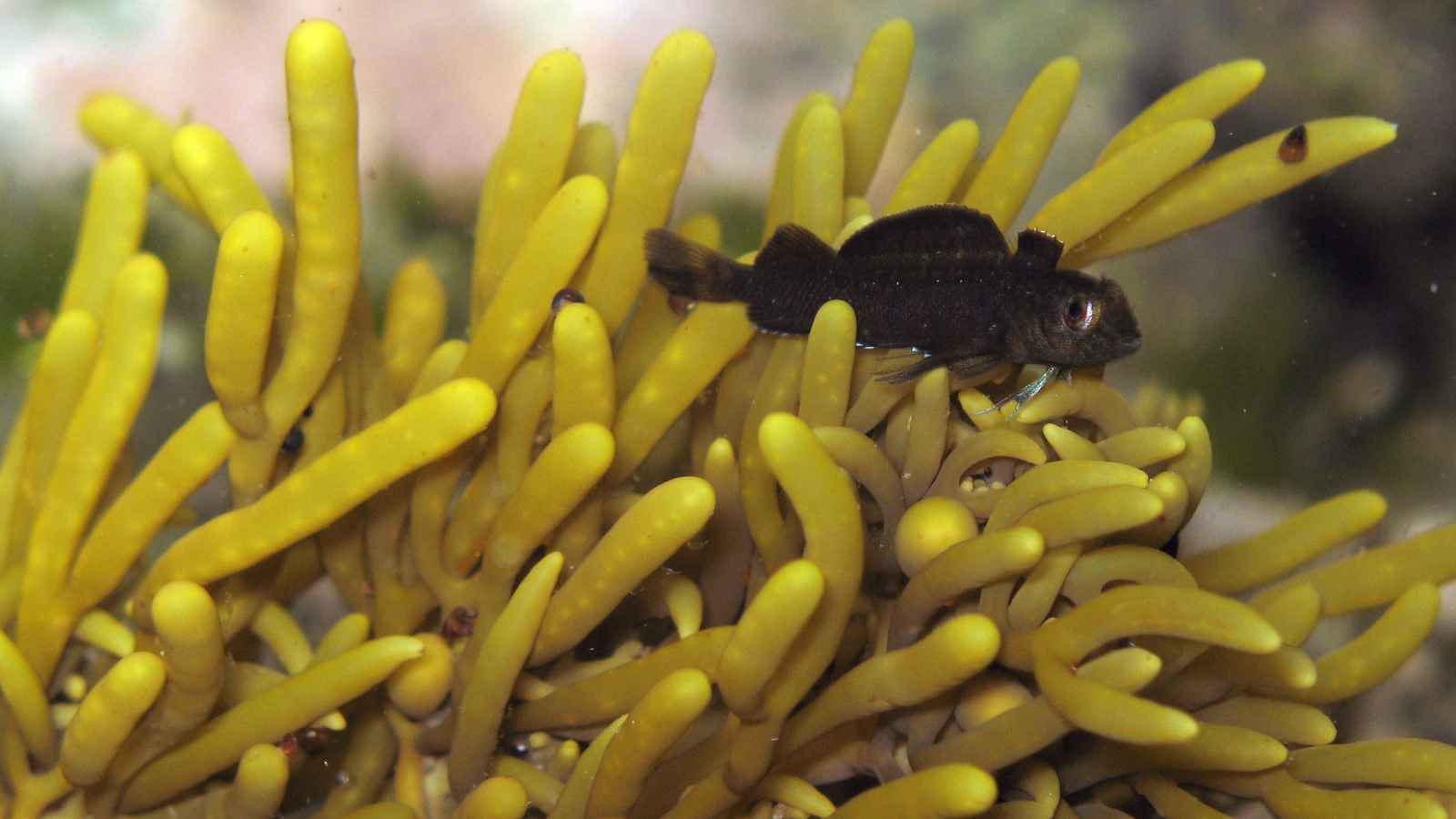
The study, which challenges the supremacy of Charles Darwin’s theory of ‘survival of the fittest’, was carried out by Dr Jeff Shima from Victoria’s School of Biological Sciences, along with scientists from Florida Atlantic University and the University of Melbourne.
Their research was primarily focused on the common triplefin, a small marine fish found along shallow reefs and tide pools throughout New Zealand.
The Marsden-funded study discovered that having a mixture of fish with different traits had positive effects on the triplefin population.
“We wanted to test whether the weaker fish attracted predators, or created less competition for resources and ultimately boosted the fate of the stronger fish,” says Dr Shima.
From their base at the Victoria University Coastal Ecology Laboratory (VUCEL), the researchers used fish ear bones to analyse how the development of baby fish determines their fate as either a ‘winner’ or a ‘loser’.
Baby fish that developed closer to shore were comparative ‘winners’ because they grew faster, had more fat, were more likely to find their way back to adult habitats, and had improved survival to adulthood. In contrast, baby fish that developed in offshore waters had weaker traits and were more likely to become reproductive ‘losers’.
“The offshore environment is less suited to growth and development of baby fish, with less food, colder temperatures and a high likelihood of separation from adults,” says Dr Shima.
“This highlights the importance of coastal marine environments closer to shore, which can function as nurseries for baby fish, but may be more easily threatened by human activities.”
The research, published today in Biology Letters, used a set of mathematical models to explore the consequences of ‘losers’, finding that their presence can reduce the strength of competition between individuals and contribute to population persistence by adding to numbers and reducing fluctuations.
“We show, perhaps counter-intuitively, how less-fit individuals can have important effects on population dynamics and population size,” says Dr Shima.
The public can learn more about this and other research conducted from VUCEL at its annual open day on 7 March 2015.
